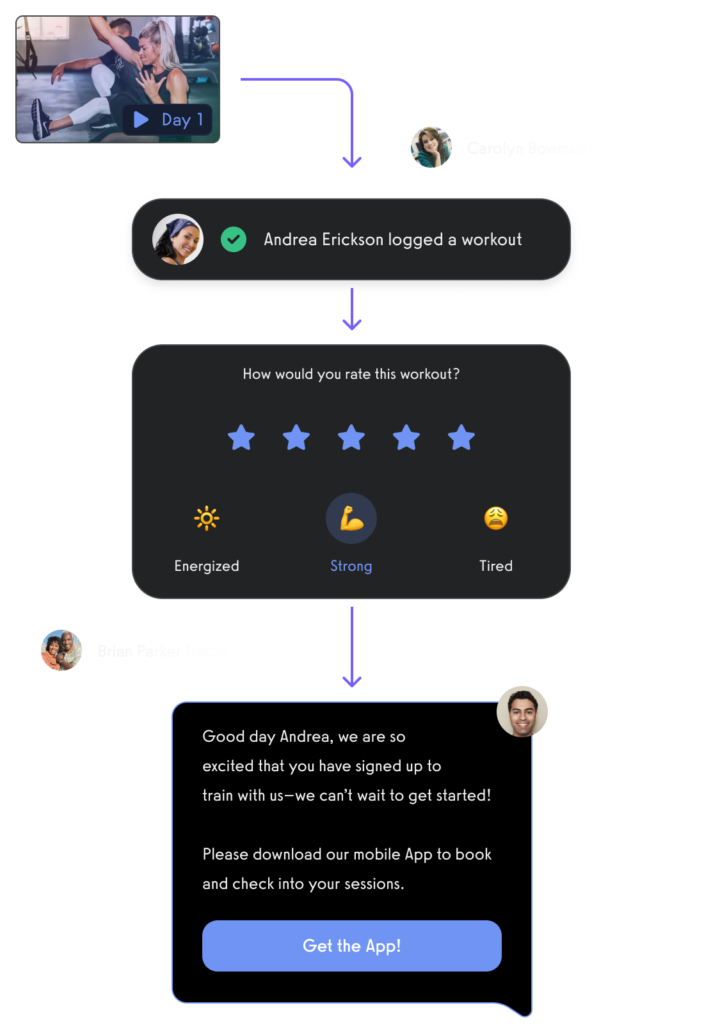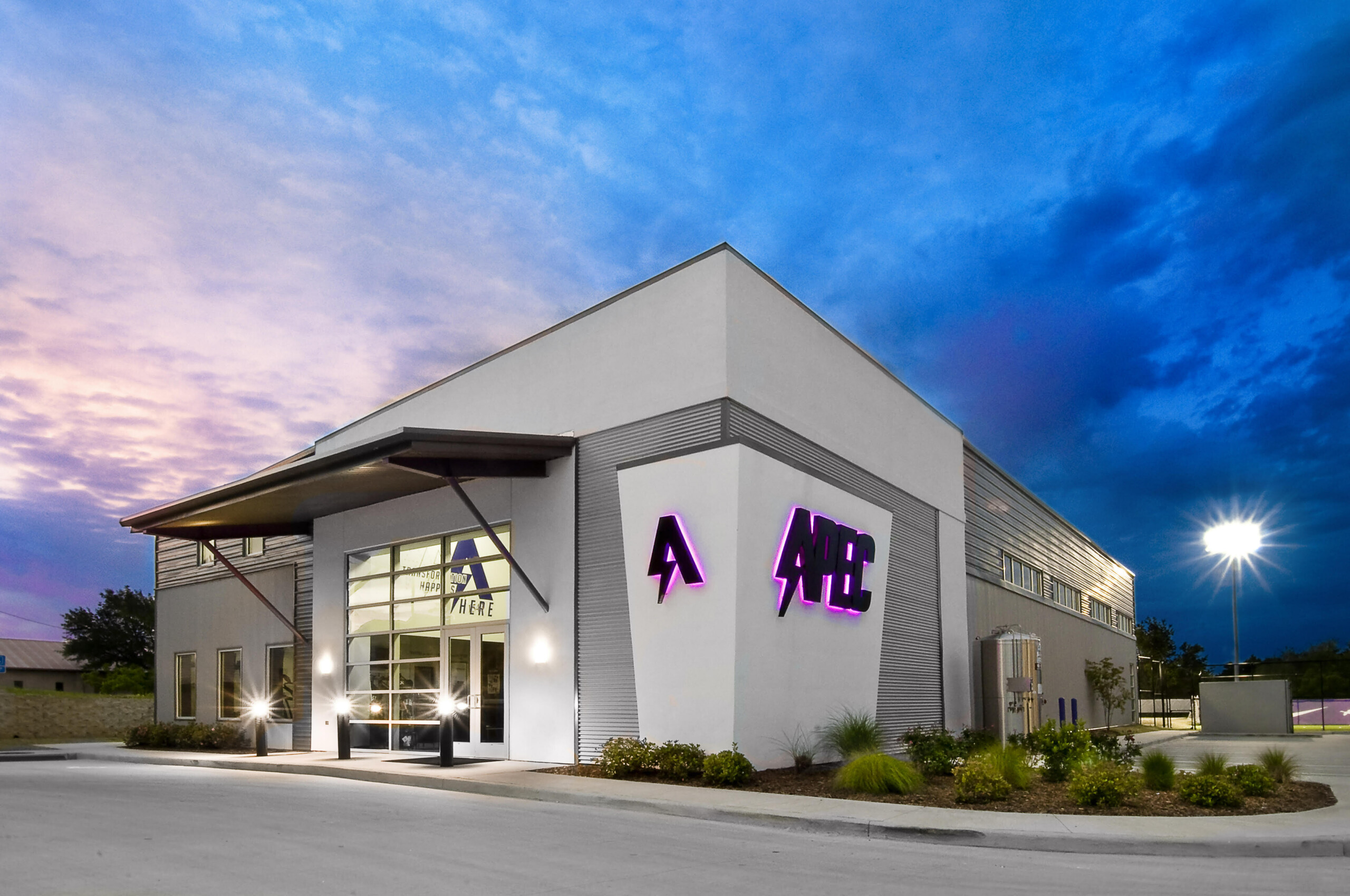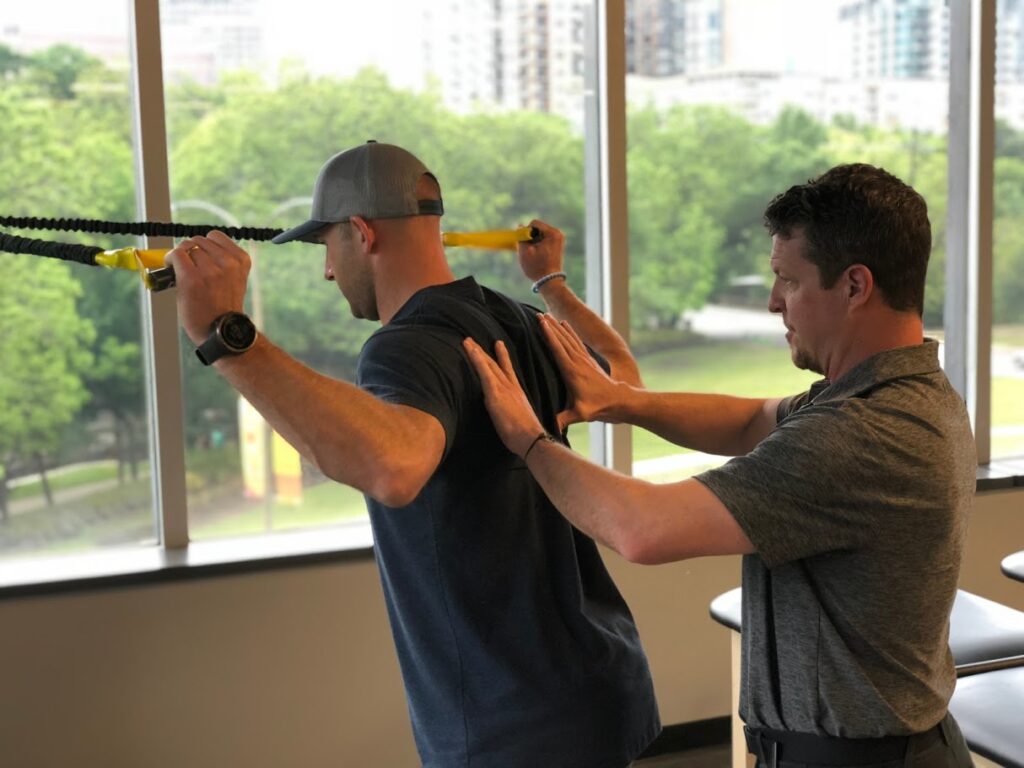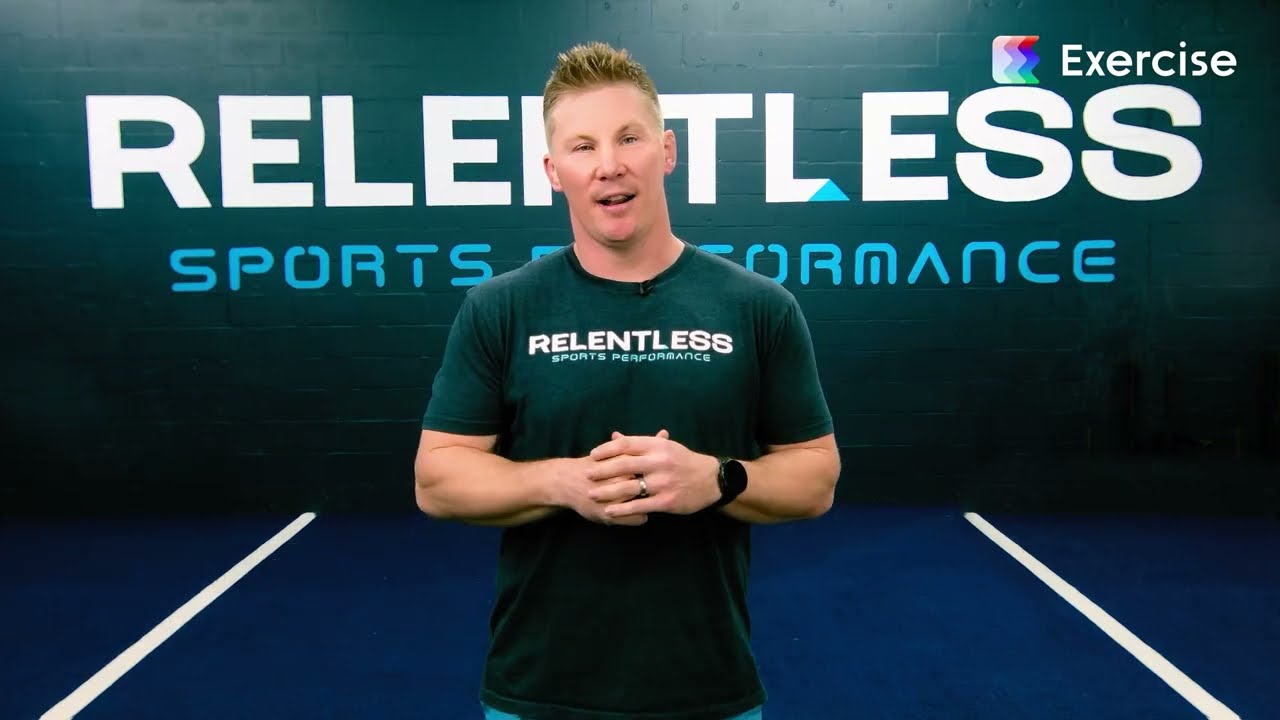Gym Zoning Requirements: What zoning is required for a gym?
The zoning requirements for opening a gym can vary significantly depending on the location and local regulations. Generally, gyms are considered commercial businesses, so they typically need to be located in areas zoned for commercial or mixed-use purposes.

Read on to learn all about gym zoning requirements and then do your research to understand all of the costs of opening a gym. Do your homework to learn how to create a gym business plan, how to create a gym budget, how to find gym insurance, how to choose a gym location, how to negotiate a gym lease, use our gym design guide for gym layout ideas, and all of the things you should know before opening a gym.

Learning how to start a fitness business is an amazing way to combine a love for health and fitness with a way to make money from fitness, but remember that a gym is a business too, and in order to have a successful gym business, you need to avoid the many common gym owner mistakes that can lead to reasons why gyms fail (for many of the same reasons, over and over, time again). There are many pros and cons to owning a gym so make sure you understand how to increase gym revenue and profit rather than just treating your new gym as a fun side hobby.
Then be sure to use the professional gym owner’s software solution. The best gym management software, and the best personal training software means that you can manage your entire gym in one place.
Offer booking and scheduling for your gym’s packages, sessions, memberships, and more.

Create and sell fitness memberships, products, and digital offers.

Manage, message, and market to your leads and members.

All from your very own custom branded fitness apps.


Key Gym Zoning Guidelines
Here are some key aspects to consider regarding zoning for a gym:
- Commercial Zoning: Most commonly, gyms need to be situated in commercially zoned areas. These zones are designated for businesses that provide goods or services, like retail stores, offices, and fitness centers.
- Industrial Zoning: In some cases, gyms, especially those that cater to specific types of training (like CrossFit or weightlifting), might be allowed in industrial zones. These areas can be more flexible regarding noise and operating hours.
- Mixed-Use Zoning: Some urban or developing areas have mixed-use zones, where commercial and residential properties coexist. Gyms located in these areas can benefit from proximity to potential clients but might have more restrictions on operating hours and noise levels.
- Parking and Accessibility Requirements: Check if there are specific requirements for parking spaces and accessibility. Gyms typically require ample parking to accommodate members, especially during peak hours.
- Specific Local Ordinances: Every municipality has its own set of rules and regulations. It’s important to check with your local planning or zoning board to understand the specific requirements and restrictions for gyms.
- Noise Ordinances: Gyms can be noisy environments due to music, equipment, and activities like weightlifting. Ensure that your gym complies with any local noise ordinances, which might influence the location choice.
- Building Codes and Safety Regulations: Apart from zoning, ensure that the building where the gym is located complies with safety regulations, fire codes, and has the necessary permits for operation.
Before signing a lease or purchasing property for your gym, it’s crucial to confirm that the zoning laws of the area permit a fitness center. Additionally, engaging with a local attorney or a real estate professional who understands the local zoning laws can be highly beneficial in navigating these complexities.
Read More:
Texas Gym Zoning Requirements: What zoning is required for a gym in Texas?
When considering opening a gym in Texas, it is crucial to understand the zoning regulations that govern such establishments. Zoning laws in Texas are set in place to ensure that certain types of land uses are appropriately situated within specific areas, promoting the overall safety and welfare of the community.
This article will delve into the zoning requirements for gyms in Texas, providing valuable insights for aspiring gym owners. In Texas, gyms generally fall under the commercial zoning category.
Commercial zoning districts are designated areas where commercial activities can occur, ranging from retail stores to restaurants and professional services. Gym facilities typically fit well within this category as they operate as businesses that provide health and fitness services to their clientele.
However, within commercial zoning districts, there may be further subcategories or specific requirements related to gyms. For instance, some cities may have additional regulations for gyms based on factors like size or intensity of use.
It is essential for potential gym owners to consult with local planning departments or zoning officials to gain a comprehensive understanding of these specific requirements before moving forward with their plans. Additionally, it is worth noting that certain areas within cities may have mixed-use zones where both commercial and residential activities coexist.
These mixed-use zones can provide opportunities for gym owners as they cater not only to residents but also nearby office workers or visitors. However, it is crucial to check if there are any restrictions or additional guidelines associated with operating a gym within mixed-use zones and ensure compliance with all applicable regulations.
Ultimately, understanding the zoning requirements for opening a gym in Texas is vital before embarking on such an endeavor. Familiarizing oneself with local regulations and consulting with relevant authorities will help aspiring gym owners navigate through the complex web of zoning laws and ensure compliance while pursuing their passion for promoting health and wellness in their communities.
California Gym Zoning Requirements: What zoning is required for a gym in California
When it comes to establishing a gym in California, understanding the zoning requirements is crucial to ensure a smooth and legal operation. Zoning regulations vary across different cities and counties within the state, so it is essential to research the specific requirements of your desired location.
However, there are certain common aspects to consider when determining what zoning is required for a gym in California. One key factor is the classification of your gym under local zoning ordinances.
Most gyms fall under the category of “Physical Fitness Facility” or “Health Club,” which are typically permitted in commercial and mixed-use zones. These zones are designated for businesses and may include areas such as shopping centers, commercial corridors, or areas specifically designated for recreational facilities.
In addition to the general zoning classification, you will also need to comply with specific land use regulations within your chosen zone. This may involve obtaining special use permits or conditional use permits to operate a gym in certain zones that have additional requirements.
For instance, some zones might require adequate parking spaces or minimum lot sizes for fitness facilities. Furthermore, California often places emphasis on ensuring that gyms do not disrupt residential areas with excessive noise or traffic congestion.
As a result, some municipalities impose limitations on operating hours and may require soundproofing measures for gyms located near residential neighborhoods. It is therefore important to review local noise restrictions and operational guidelines when determining what zoning is required for your gym in California.
Overall, navigating through the intricate web of zoning regulations in California can be a challenging task when establishing a gym. It is essential to consult with local planning departments or engage professional help from attorneys or consultants who specialize in land use laws to ensure compliance with all relevant restrictions and obtain any necessary permits before proceeding with your venture.
Florida Gym Zoning Requirements: What zoning is required for a gym in Florida
What zoning is required for a gym in Florida When it comes to opening a gym in Florida, one of the crucial factors to consider is the zoning requirements.
Zoning regulations determine how properties can be utilized and what type of businesses can operate in specific areas. Understanding the zoning requirements for gyms is essential to ensure compliance with local laws and avoid any unnecessary legal issues.
In Florida, gyms generally fall under the category of “commercial recreation facilities” or “health studios.” The specific zoning district where these types of businesses are permitted can vary depending on the city or county. For instance, in Miami-Dade County, gyms are often allowed in commercial zones such as C-1 (Neighborhood Commercial) and C-2 (General Commercial).
These districts are usually located in urban areas where various commercial activities are concentrated. Aside from considering the zoning district, it’s also important to keep an eye on other criteria such as building size limitations and parking requirements.
Some municipalities may have specific regulations regarding the minimum lot size or square footage for operating a gym. Additionally, they may require a certain number of parking spaces based on the anticipated occupancy load of the facility.
These regulations aim to ensure safety, accessibility, and proper infrastructure within the community. Before opening a gym in Florida, it is crucial to consult with local planning departments or zoning officials to determine which zone your desired location falls under and confirm if gyms are permitted there.
It might also be beneficial to engage an attorney familiar with local ordinances to navigate through any potential complexities that arise during this process. By understanding and adhering to Florida’s specific zoning requirements for gyms, you will not only ensure compliance but also contribute positively towards creating vibrant fitness communities while providing opportunities for people seeking physical wellness within your chosen area.

Legal Requirements for Opening a Gym
Opening a gym is an exciting endeavor, but it requires careful consideration of the legal requirements involved. To ensure a smooth and successful launch, it’s crucial to understand and comply with the various regulations.
This section will delve into the legal requirements for opening a gym, focusing on key aspects such as permits, licenses, and insurance. Firstly, obtaining the necessary permits is essential when starting a gym.
Depending on your location, you may need to acquire building permits to ensure that your facility complies with local construction codes and safety standards. These permits typically involve inspections by relevant authorities to assess compliance regarding structural integrity, fire safety measures, electrical wiring standards, plumbing systems, ventilation systems, and accessibility for people with disabilities.
Additionally, gym owners must obtain the appropriate business licenses before officially opening their doors. These licenses vary from state to state or even from one municipality to another within the same state.
It’s crucial to research and identify the specific licenses required in your area. Generally speaking, these licenses include business registration or incorporation documents that prove you are operating within legal boundaries.
Insurance coverage is another vital element in meeting legal requirements for operating a gym. It not only protects your business but also safeguards your clients’ well-being should any accidents occur within your premises or as a result of using your equipment.
Liability insurance is typically mandatory for gyms as it covers injuries sustained by patrons during workouts or due to negligence on behalf of staff members. Additionally, property insurance is advisable to protect against potential damage caused by unforeseen events such as fire or natural disasters.
Overall, understanding the legal requirements surrounding permits and licensing for gyms is crucial before launching such an establishment. By ensuring compliance with building codes through acquiring proper permits, obtaining necessary business licenses specific to your area of operation while also securing adequate insurance coverage; you can lay a solid foundation for not only protecting yourself legally but also creating a safe environment conducive for clients seeking fitness goals without unnecessary risks or liabilities.
Read More:
Gym Licenses and Permits Cost
When it comes to opening a gym, one of the essential considerations is the cost associated with obtaining the necessary gym licenses and permits. These costs may vary depending on several factors, including the location of your gym, the size of your facility, and the specific requirements set by local authorities.
It’s crucial to have a clear understanding of these expenses to effectively budget for your venture. The first cost you will encounter is the initial application fee for obtaining a gym license or permit.
Typically, this fee ranges from $100 to $500, depending on your location. However, bear in mind that some cities or states might require additional fees or deposits for specific permits related to health and safety regulations.
Another significant expense is related to ongoing licensing fees. These fees are required to maintain compliance with regulations and may be renewed annually or biennially.
The amount can vary significantly based on jurisdiction but can range anywhere from $500 to $2000 per year. Additionally, certain permits may have separate costs associated with them.
For example, if you plan on offering group fitness classes that include music usage, you might need a separate license for playing copyrighted music in public spaces. This type of license can range from $250-$500 per year.
It’s worth mentioning that these figures are estimates as licensing costs can vary significantly depending on state laws and local ordinances. Therefore, it’s vital to research the specific requirements in your area or consult with an attorney who specializes in fitness industry regulations to obtain accurate information regarding costs related to gym licenses and permits.
While opening a gym undoubtedly requires financial investment for licenses and permits, it’s important not only to consider the upfront costs but also account for ongoing licensing fees as part of your business operation expenses. Conducting thorough research into local requirements will help you anticipate these expenses more accurately as you embark on establishing your own fitness facility.
Gym Licenses and Permits in Texas
Texas is a state known for its vibrant fitness culture, with numerous gyms and fitness centers catering to the health-conscious population. However, opening a gym in Texas requires careful consideration of zoning regulations and obtaining the necessary licenses and permits. Understanding the specific requirements for gym licensing in Texas is essential to ensure compliance with state laws and regulations.
In order to legally operate a gym in Texas, aspiring gym owners must obtain various licenses and permits. Firstly, they need to secure a general business license from the local city or county government where their gym will be located.
This license ensures that the business complies with local regulations such as zoning restrictions, building codes, safety standards, and health department requirements. Next, gym owners must also acquire an Employer Identification Number (EIN) from the Internal Revenue Service (IRS).
This unique identification number is crucial for tax purposes and allows them to hire employees legally. Additionally, obtaining workers’ compensation insurance is mandatory when employing staff members at a gym facility.
Furthermore, it’s important for gym owners in Texas to obtain any necessary professional licenses or certifications required by their specific area of expertise. For example, personal trainers working within the gym may need to hold certifications from recognized organizations such as the American Council on Exercise (ACE) or National Academy of Sports Medicine (NASM).
In addition to these general business licenses and certifications, there may be additional permits required specifically for operating a gym facility in certain cities or counties within Texas. It’s advisable for potential gym owners to consult with local authorities or seek legal guidance to determine if there are any additional licensing requirements based on their location.
Overall, navigating through the process of obtaining licenses and permits can be complex; however, adhering to these requirements ensures that gyms in Texas operate legally while providing a safe environment for individuals pursuing their fitness goals. By diligently following all necessary steps and acquiring appropriate licenses and permits, aspiring entrepreneurs can establish successful gyms that contribute positively to the fitness landscape of Texas.
Gym Licenses and Permits in California
When opening a gym in California, it is crucial to understand the specific licenses and permits required by the state. This ensures that you are in compliance with all regulatory requirements and can operate your gym smoothly without any legal impediments.
To begin, one of the primary licenses you will need is a general business license issued by the city or county where your gym is located. This license confirms that you have met certain local regulations and are authorized to operate a business within that jurisdiction.
Additionally, depending on the services offered at your gym, you may need additional specialized permits. For instance, if you plan to offer personal training services or fitness classes led by certified instructors, it is essential to obtain a Health Studio Registration from the California Department of Consumer Affairs.
This registration ensures that your instructors meet specific qualifications and are adequately certified for their respective roles. Moreover, since gyms typically involve physical activities and equipment usage, it is necessary to comply with safety regulations.
In California, this includes obtaining an Annual Certification of Compliance (ACC) from the Division of Occupational Safety and Health (Cal/OSHA). The ACC demonstrates that your gym meets all safety standards regarding equipment maintenance, emergency procedures, sanitation protocols, and employee training.
Navigating through the licensing and permitting requirements for opening a gym in California can be complex but necessary for ensuring legal compliance. Obtaining a general business license from the local government authorities serves as a foundational requirement.
However, it is also important to consider specialized permits such as Health Studio Registrations if offering personal training or fitness classes led by certified instructors. Prioritizing safety measures through obtaining an Annual Certification of Compliance from Cal/OSHA reinforces trust among clientele while safeguarding both customers and employees within your fitness establishment.
Gym Licenses and Permits in Florida
In the sunny state of Florida, opening a gym requires adherence to specific licensing and permitting regulations.
Aspiring gym owners must navigate through a variety of governmental agencies to ensure they meet the necessary requirements. The Florida Department of Health (DOH) and local county health departments play vital roles in overseeing the licensing process for gyms and fitness centers.
To begin, gym owners must obtain a license from the DOH. This license is known as a “Health Studio Certificate” and is required for any establishment offering physical fitness services to its customers.
The application process typically involves submitting detailed information about the gym’s location, layout, equipment, and general operations. Additionally, individuals applying for this license may need to provide proof of liability insurance coverage.
Furthermore, gyms in Florida must comply with specific health regulations imposed by county health departments. These regulations primarily focus on maintaining cleanliness and adhering to safety standards within the facility.
Gym owners may need to pass routine inspections conducted by county health officials to confirm compliance with these requirements. Key areas assessed during inspections include proper sanitation practices, regular equipment maintenance, appropriate ventilation systems, adequate lighting conditions, and sufficient emergency exits.
In addition to licenses from the DOH and county health departments, some municipalities within Florida may require additional permits or approvals for gyms operating within their jurisdiction. These permits can vary depending on factors such as zoning restrictions or neighborhood regulations designed to maintain community harmony.
It is advisable for prospective gym owners to consult with local authorities or zoning boards early in their planning process to determine if any additional permits are necessary. Navigating through the licensing and permitting requirements in Florida can be intricate; however, once these obligations are met successfully, gym owners can confidently welcome fitness enthusiasts into their establishments without concerns about legal compliance.
Understanding Gym Zoning Requirements
Understanding the zoning requirements for opening a gym is crucial to ensure compliance with local regulations and avoid legal issues. Each state, such as Texas, California, and Florida, has its own specific zoning regulations that dictate where gyms can be established. It is important to research and obtain the necessary licenses and permits to legally operate a gym in these states.
When it comes to zoning requirements for gyms in Texas, it is essential to consider factors such as property size, location, and proximity to residential areas or other businesses. The Texas Department of Licensing and Regulation has established guidelines that outline the necessary steps for obtaining permits and licenses.
Complying with these regulations not only ensures legal operation but also promotes safety and maintains the quality standards expected from a professional gym. Similarly, California has its own set of zoning requirements for gyms.
The state’s Land Use Planning Regulations divide land into various categories based on its designated use. Prior research into the specific zoning designations is imperative when deciding on a location for a gym in California.
This will help determine whether a particular property is zoned appropriately for that purpose or if additional permissions need to be sought. In Florida, obtaining proper zoning approvals involves adhering to local governing bodies’ guidelines such as city ordinances or county codes.
These regulations often determine which areas are suitable for commercial use like gyms. Familiarizing oneself with these rules early on will save time and effort when searching for potential locations.
Overall, navigating through the complex world of zoning requirements can be challenging but ultimately rewarding when establishing a successful gym business. By researching state-specific guidelines thoroughly, seeking professional advice if needed, and ensuring compliance with all licensing requirements at every step of the process, aspiring gym owners can confidently open their doors while abiding by all necessary legalities — paving the way toward success in this thriving industry.

What is the minimum space required for a gym?
The minimum space required for a gym varies based on the type of gym and the services offered. For small personal training studios, 500 to 1,000 square feet might be sufficient, while larger commercial gyms often require at least 3,000 to 10,000 square feet or more.
Read More: How much space is required for a gym?
What are the legal requirements for a gym?
The legal requirements for a gym typically include obtaining the necessary business permits and licenses, complying with local zoning laws and building codes, adhering to health and safety standards, securing appropriate insurance, and following employment laws if hiring staff.
What type of space do you need for a gym?
The type of space needed for a gym should be accessible, spacious enough for various equipment and classes, well-ventilated, and safe, complying with safety standards including emergency exits and fire safety.
Where can I get more information about my state’s gym zoning requirements?
To get more information about your state’s gym zoning requirements, contact your local city or county zoning office, or consult their websites for specific zoning laws and regulations related to gym facilities.
Do I need an attorney or real estate agent to get more information on gym zoning requirements?
While not always necessary, consulting an attorney or real estate agent knowledgeable in local zoning laws can be beneficial, particularly if you face complex legal challenges or specific zoning issues for your gym.
How do you design a gym layout?
To design a gym layout, consider space allocation for different areas (weights, cardio, classes), ensure a logical flow of movement, leave adequate space between equipment for safety, and include areas for rest and hydration.
Read More:
Are small gyms profitable?
Small gyms can be profitable if they effectively manage operational costs, cater to a niche market, and maintain a strong member base, focusing on community engagement and efficient business practices.
Read More: How profitable is owning a gym?
How do gyms make money?
Gyms make money primarily through membership fees, personal training services, specialty classes, and additional services like merchandise sales or wellness offerings.
Read More: How do gyms make money?
What is the occupancy load for a gym?
The occupancy load for a gym is determined by local building and fire safety codes, typically based on the gym’s size and layout, with specific square footage requirements per person for safety.
How can Exercise.com help me run a gym business?
Exercise.com can help you run a gym business by providing an all-in-one software solution for gym management, including membership management, scheduling, billing, workout plan creation, and reporting. This platform streamlines administrative tasks and enhances member engagement, making gym management more efficient and effective.










